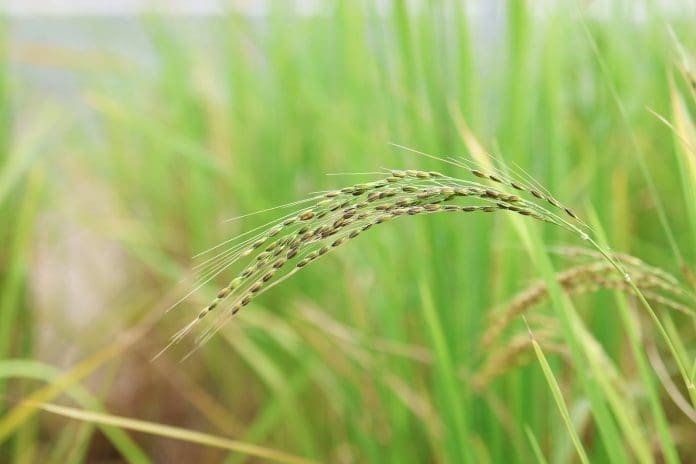A three-year agricultural partnership aims to transform Ghana’s rice sector by increasing yields from 2.5 metric tonnes per hectare to 4.5 tonnes while strengthening market connections across the middle-belt ecological zone.
The John A. Kufuor Foundation, Hopeline Institute, and FarmWallet Limited are leading the “Enhancing the Competitiveness of Rice Production, Processing and Marketing in Ghana” project with funding from the Alliance for Green Revolution in Africa.
Ghana currently produces only 47 percent of its 1.5 million metric tonnes annual rice demand, creating substantial import dependency that undermines food security and economic resilience according to Ministry of Food and Agriculture data.
The initiative running from 2025 to 2027 addresses critical challenges including poor farming practices, limited mechanization access, inadequate financing, and weak market linkages that keep productivity below regional averages.
Each consortium partner brings specialized expertise to the collaboration. The Kufuor Foundation will handle policy advocacy and governance while coordinating national and regional rice development strategies with government agencies.
Hopeline Institute will manage farmer mobilization, training programs, and technology adoption efforts designed to improve cultivation techniques and introduce modern farming equipment to participating communities.
FarmWallet Limited will strengthen financial technology solutions and create better financing linkages for farmers and processing companies seeking capital for expansion and equipment purchases.
The project also aims to increase consumer awareness and preference for locally produced rice, addressing market dynamics that currently favor imported varieties despite domestic production capabilities.
Godfrey Appiah Acheampong, Acting Ashanti Regional Director of Agriculture, pledged ministry support through training programs, demonstration farms, and improved marketing techniques during the project’s inception meeting in Kumasi.
“I call on rice farmers to embrace the project and scale up their production,” Acheampong told stakeholders gathered from selected districts across the Ashanti Region.
Ghana’s rice sector faces persistent challenges including climate vulnerability from prolonged droughts, limited structured markets, and poor access to extension services that could improve farmer knowledge and productivity.
While government policies exist to support rice development, weak implementation has prevented significant progress toward self-sufficiency goals that could reduce import spending and strengthen rural economies.
The middle-belt ecological zone offers favorable conditions for rice cultivation but requires coordinated interventions to unlock production potential. Previous efforts have struggled with fragmented approaches that failed to address systemic value chain weaknesses.
The consortium model combines policy influence, technical training, and financial innovation to create comprehensive support systems for rice farmers and processors. Success could provide a template for similar interventions in other agricultural commodities.
Regional rice production initiatives have gained momentum as West African countries seek to reduce dependence on Asian imports while building food security resilience against global supply chain disruptions.
Source: newsghana.com.gh











